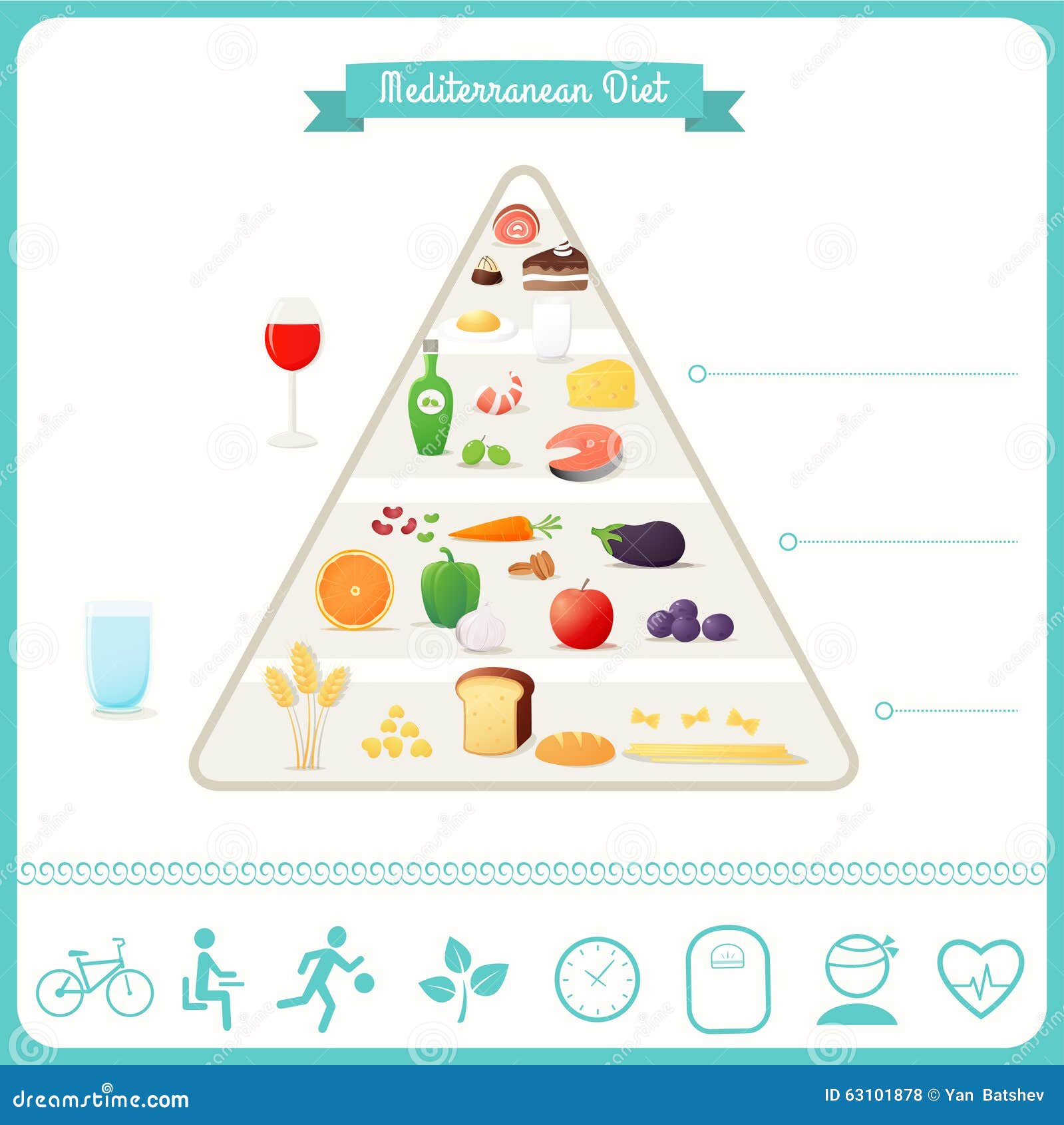 Eating the right balance of healthy fats and plant-based foods make your body feel satisfied in a natural way. The Mediterranean diet plan has become very popular today with a series of studies each month that documents its benefits. The core foods that you should shop for every day include fresh fruits, vegetables, whole grains, herbs, beans, nuts, spices and healthy fats such as olive oil. Seafood and fish should be incorporated in your menu at least twice in a week. Fermented dairy foods such as traditional cheese and yogurt are frequently eaten in moderate amounts.
Eating the right balance of healthy fats and plant-based foods make your body feel satisfied in a natural way. The Mediterranean diet plan has become very popular today with a series of studies each month that documents its benefits. The core foods that you should shop for every day include fresh fruits, vegetables, whole grains, herbs, beans, nuts, spices and healthy fats such as olive oil. Seafood and fish should be incorporated in your menu at least twice in a week. Fermented dairy foods such as traditional cheese and yogurt are frequently eaten in moderate amounts.Second Level: The second level of the pyramid is composed of vegetables, fruits, nuts and beans. Third Level: Here we have olive oil. Substantial amounts of olive oil are consumed in the Mediterranean Diet, and it's a good portion of the total fat consumed on a daily basis. Fourth Level: This level is dairy products like cheese and yogurt - which are consumed in much smaller quantities than any of the previous foods on this list. Fifth Level: Here we find fish and poultry, then eggs, sweets and lastly red meat. Red meat is at the top of the pyramid (i.e,. This is very different from our diet in the U.S., which contains a much higher level of red meat consumption. As you know, the Mediterranean Diet is great for people searching for a healthy, natural way to lose weight.
In other words, the U.S. One major difference is the "Daily/Weekly/Monthly" designation on the Mediterranean version. The USDA Food Pyramid is intended to show recommended intakes of different food groups for daily consumption. The "daily" section of the Mediterranean does not include red meat, sweets, or even potatoes. It is limited to grains, fruits, vegetables, cheese, yogurt and olive oil. Daily olive oil use is clearly recommended, since this food has its very own rung of the triangle, just above fruits and vegetables.
Olive oil may have a cardioprotective effect studies indicate, by lowering blood pressure, inhibiting oxidation of LDL-C, providing antithrombotic effects, and improving insulin sensitivity. A recent randomized double-blind study found that olive oil reduced blood pressure in patients with hypertension; the improvement was enough to allow for a 50% decrease in antihypertensive drug dosage. The strong taste of extra-virgin olive oil is partly caused by the presence of significant quantities of flavonoids, which are polyphenolic antioxidants that have been shown to inhibit LDL-C oxidation.
Moving upwards, you will see the core foods for everyday consumption to focus around whole grains, beans, nuts, herbs & spices, fruits, vegetables and olive oil. At this point it may seem light on proteins (fish, meat, chicken) and tasteless, but contrary to Western cuisine, many Mediterranean non-protein dishes are so incredibly flavorful and delicious you will easily forget that they don’t include much protein. Fish and seafood are eaten at least twice a week, as are eggs and chicken. Red meat and sweets are rarely eaten.
The diet examined by most studies is high in healthy plant foods and relatively low in animal foods. However, eating fish and seafood is recommended at least twice a week. The Mediterranean lifestyle also involves regular physical activity, sharing meals with other people and enjoying life. Presents at lunch and dinner; more or equal two servings per meal, at least one of the serving should be raw. A variety of colours mediterranean diet food pyramid textures provide a diversity of antioxidants and protective compounds.
In fact, it protects our body against cardiovascular disease, cancer, and probably from allergies and asthma. Not only that, the Mediterranean diet would reduce the chances of developing brain disease such as the Alzheimer one. Finally, the Mediterranean diet improves circulation at the level of the renal arteries, which is particularly important for patients with chronic kidney failure.
Yotam Ottolenghi visted the Greek Island of Crete made this video to show dietary habits of the locals. This one of the first places researches noted the benefits of the Mediterranean lifestyle. Mediterranean diet has been credited in recent studies to help high blood pressure, control weight thus prevents metabolic syndrome and obesity, reduce certain cancers and Alzheimer’s disease. Overall it has shown to increase one’s life span. Along with their diet the Mediterranean’s’ lifestyle also involves active physical activities, socializing with other people and enjoying life. “In the Mediterranean, the “eat and run” concept is unheard of.
You have probably heard about the Mediterranean Diet and the benefit this diet plan can have on your health and lifestyle. But, like so many other people, you have probably just heard about it, you don't know the details and probably think Mediterranean meal plan is difficult to follow. The beauty of Mediterranean cuisine is that anyone, at any given time can follow this simple diet and can enjoy all the health benefits from Mediterranean life style.

Post a Comment for "Mediterranean Diet Pyramid, Plan & Menu"